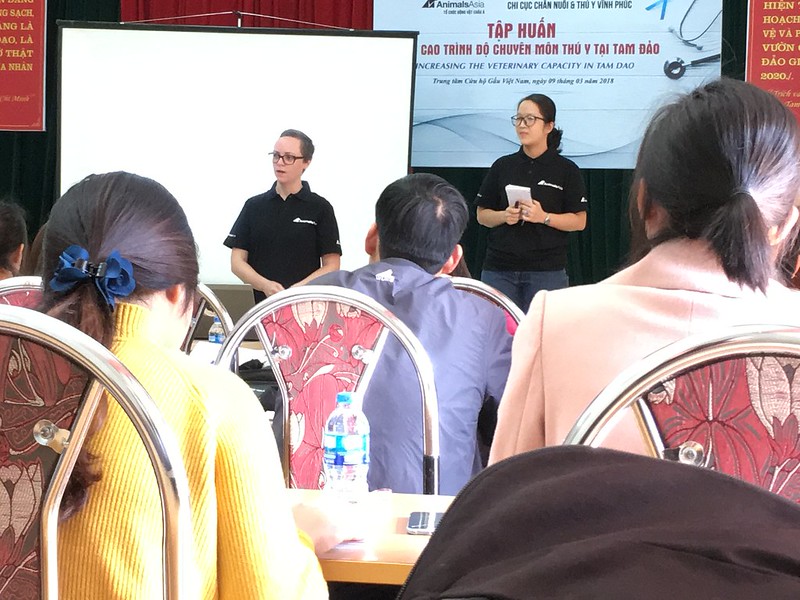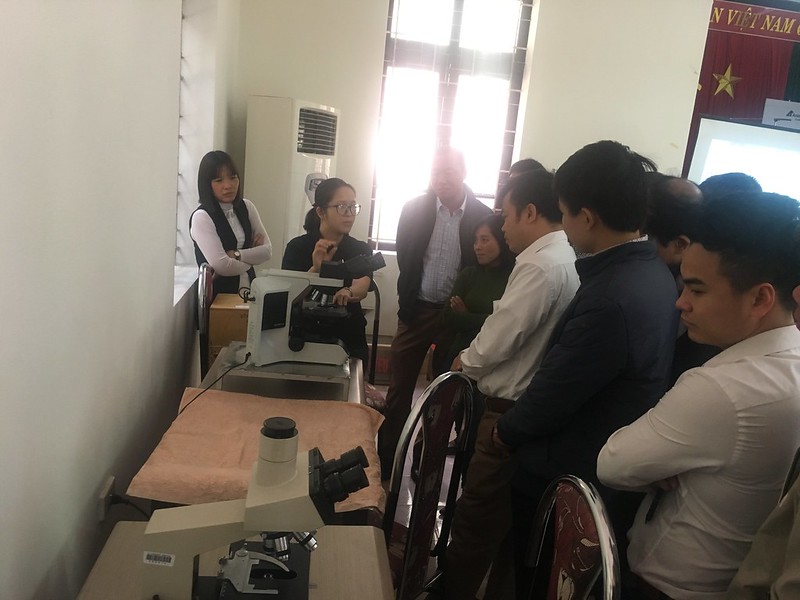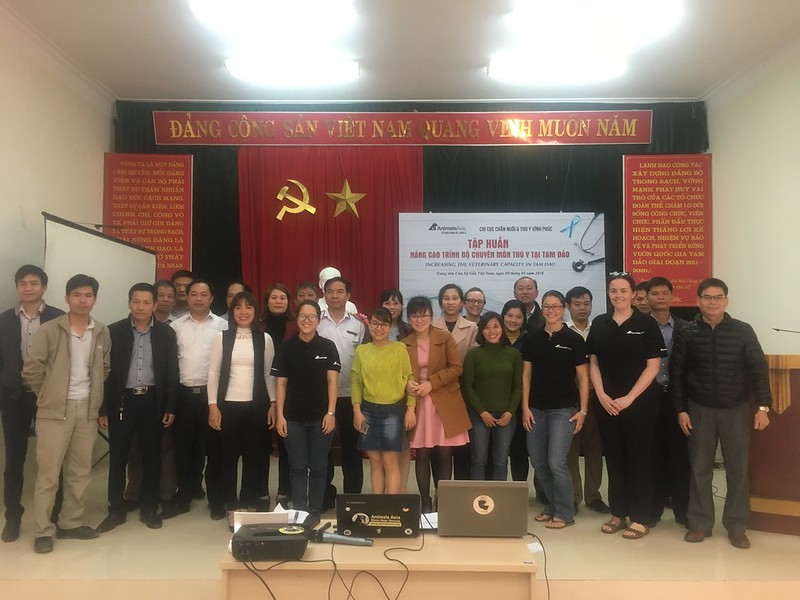Health care and respect go hand in hand for Vietnam’s dogs and cats
16 March 2018
A new programme is training Vietnamese vets in small animal health care to boost welfare and foster respect for our furry friends.
Parvovirus, canine distemper virus and tropical skin diseases are just some of the ailments commonly suffered by dogs in Vietnam. They can be hugely debilitating and even fatal, yet many animals receive little or no health care for their conditions.
Many guardians are simply unaware that their companions require regular check ups while many veterinarians have precious little training in evidenced-based medicine and animal welfare.
That is why 30 veterinarians – many of whom work for the government – visited Animals Asia’s Vietnam Bear Rescue Centre this month for the first instalment of practical training sessions on small animal medicine.
The knowledge and skills learned on the course will improve welfare for dogs and cats as well as increase understanding of common medical conditions, evidence-based medicine and appropriate treatments.
Animals Asia Veterinarian Josephine Clapham, who led the training, said:
“Improving vet care across Vietnam is a long-term goal for us and these training sessions are a huge part of that. Too many dogs and cats receive either very poor health care, or no health care at all. Working with our Vietnamese veterinary colleagues and continuing to learn from each other will improve our patients' welfare and reduce suffering.”
The four-hour training session featured both short lectures and practical sessions on skin and ear disease in dogs and cats – a common ailment in the tropical climate which is often left untreated.
The training sessions are planned to run quarterly and are the latest example of Animals Asia’s efforts to increase local veterinary capacity in Vietnam to improve the lives of dogs and cat in the country.
Animals Asia’s Vietnam sanctuary also runs a vet intern training programme. The role gives outstanding recent Vietnamese veterinary graduates a programme of clinical instruction and international-standard practical experience which they can implement in their future careers.
This year’s vet intern Ho Le Kieu Diem was a key part of the veterinary training programme, helping to draft, refine and deliver the course materials.
Animals Asia’s Vietnam Director Tuan Bendixsen said:
“Building capacity in Vietnam is hugely important and a key goal for Animals Asia. Animal welfare concepts are relatively new to veterinary training in the country and it is an issue we have always strived to foster. Animal welfare has to be holistic and part of the way animals are treated and cared for in every situation if a healthy respect for animals is to become prevalent.
“We want high standards of welfare to be a non-negotiable skill for good veterinarians across the country who can set the standard for others to follow. Through our internships and training sessions, we can ensure these principles are circulating in the veterinary community.”
BACK






